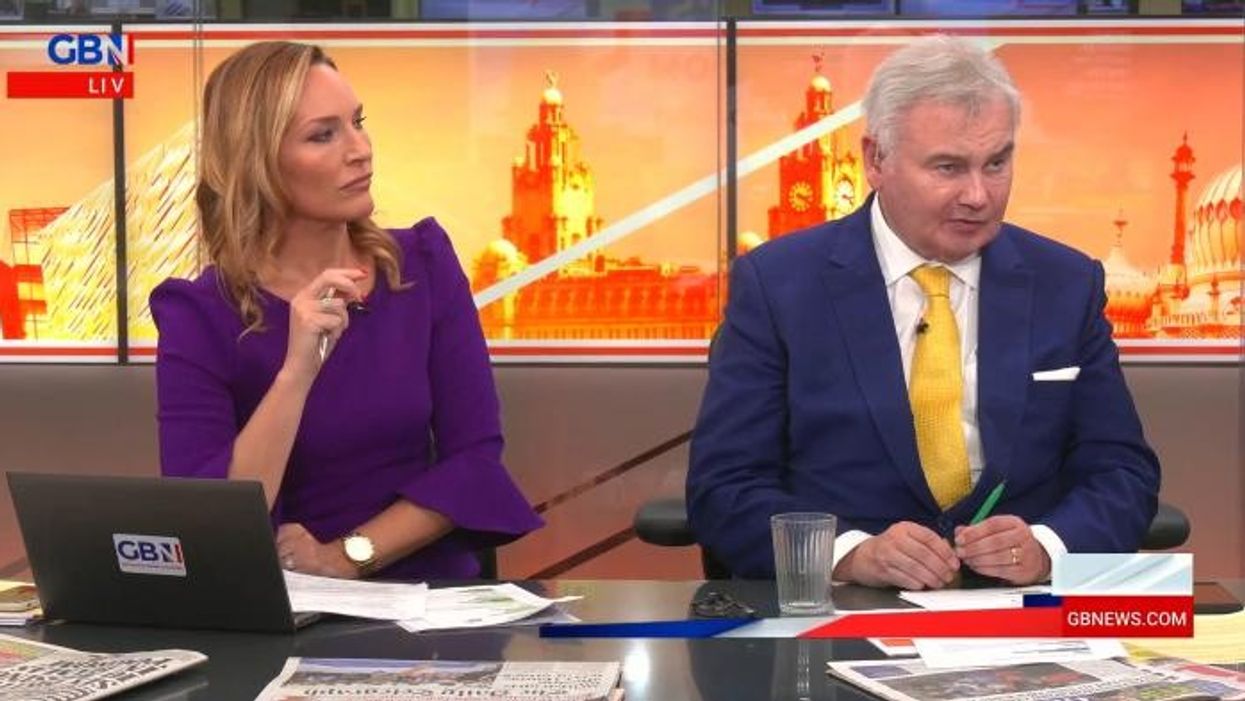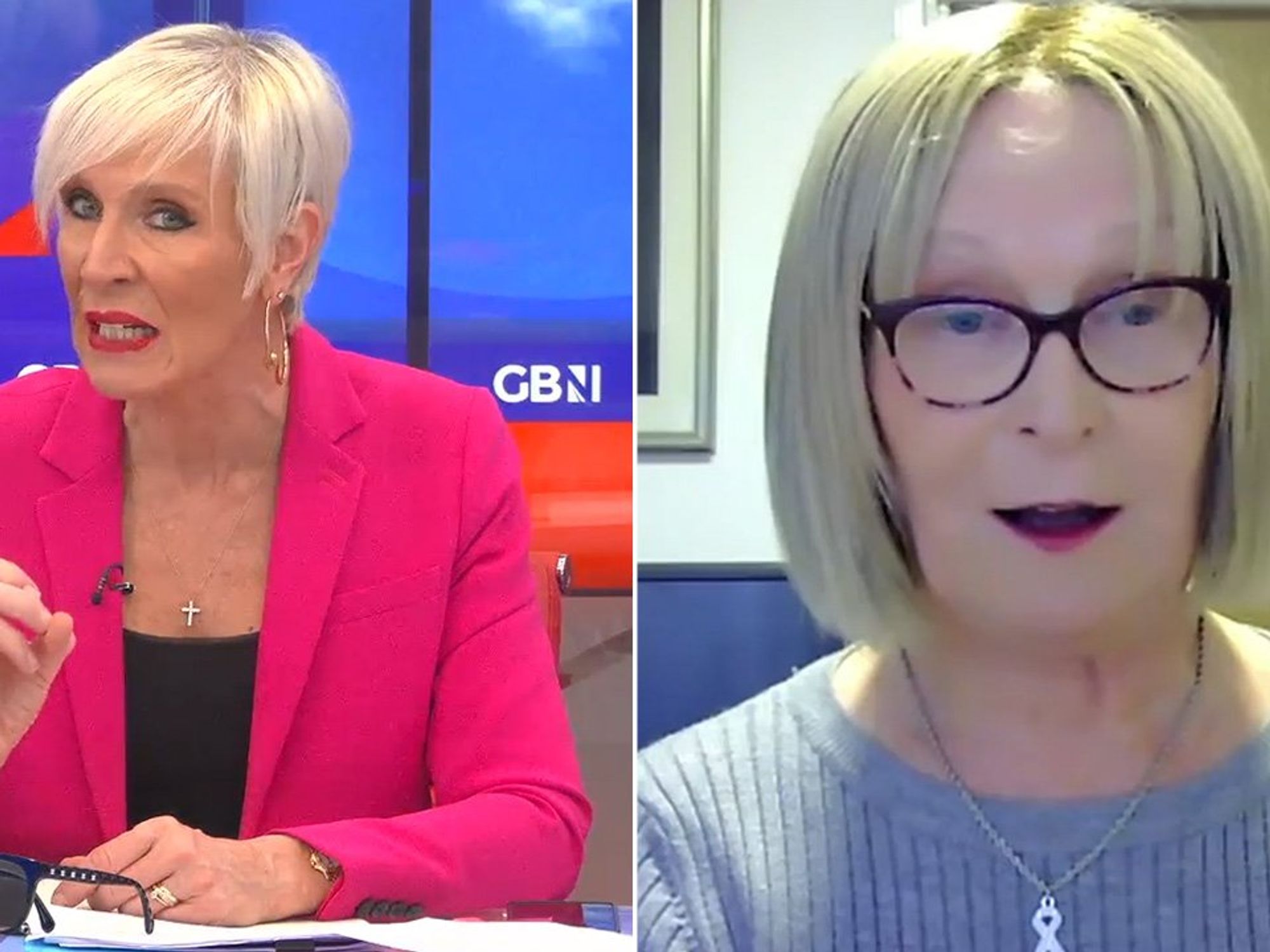'Deliberately restricting oil supply!' Opec countries are controlling oil prices to line their own pockets
GB News’ economics and business editor Liam Halligan blasted the Opec nations
Don't Miss
Most Read
Oil prices have gone up sharply as a result of the rapidly escalating crisis in the Middle East, threatening to put further pressure on Brits' spending.
GB News’ economics and business editor Liam Halligan joined Eamonn Holmes and Isabel Webster on Breakfast to discuss the latest figures.
“Oil prices have gone up sharply as a result of the rapidly escalating crisis in the Middle East.”
“Oil's gone up from about $70.00 a barrel to $90.00 a barrel since June. That's almost a 30 per cent rise. And that of course has ramped up petrol and diesel prices.
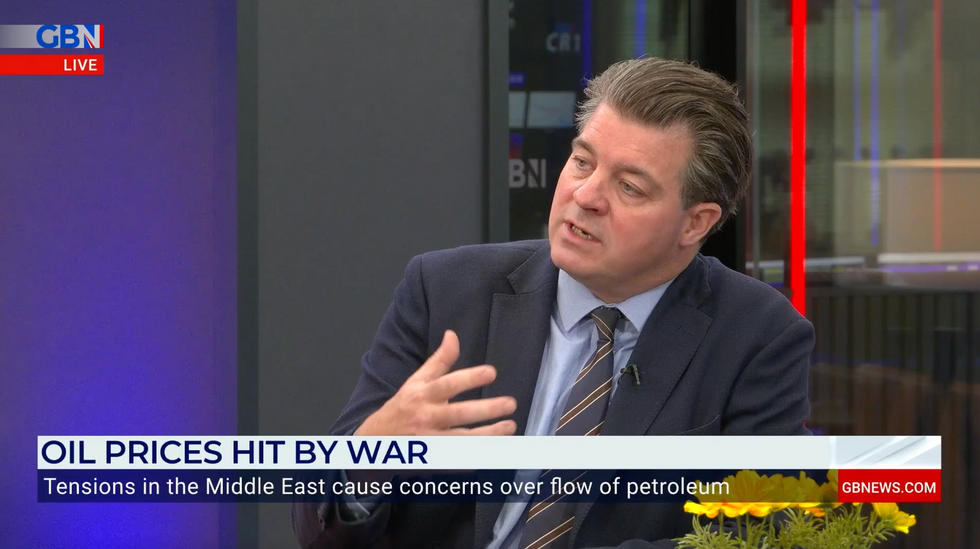
Liam Halligan discusses rising oil prices amid conflict in the Middle East
|GB News
“Petrol up to £1.56 a litre from £1.47. Diesel up even more from £1.45 a litre to £1.62. That's from June until now.”
The news comes alongside an announcement from the Office for National Statistics that average pay growth has risen above inflation for the first time in two years.
However, fears are that as the situation in and around Israel goes on, potentially worsening, oil prices and other costs could hit new highs in the following months.
Liam offered some explanation for the new figures, saying “One reason is what we call the Opec exporters cartel, the Organization of Petroleum Exporting Countries.“
LATEST DEVELOPMENTS:
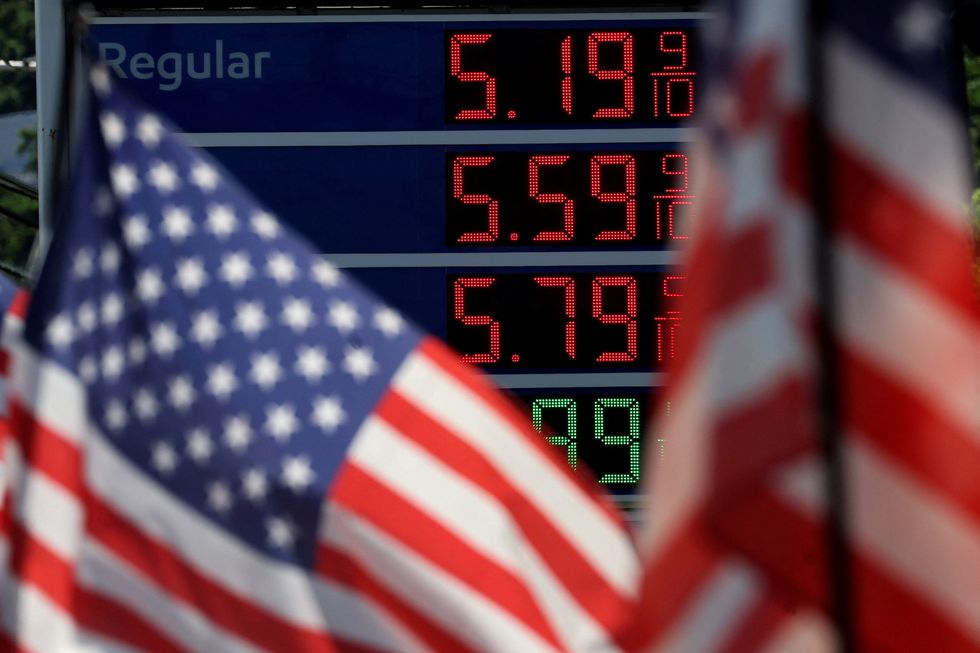 The Israel-Hamas war could cause oil prices to spike across the world's energy markets, leaders in the United States and Europe have been warned | Reuters
The Israel-Hamas war could cause oil prices to spike across the world's energy markets, leaders in the United States and Europe have been warned | ReutersOpec refers to a group of 13 of the world’s major oil-exporting nations, including Qatar and the United Arab Emirates in the Middle East.
“They're working with Russia. They're deliberately restricting supply to push up oil prices, put pressure on oil importers from the West, make more money from themselves.”
On how the current conflict has affected oil prices, Liam says: “Israel doesn't produce any oil, but it could lead to instability, particularly if Iran, a key player, closes what we call the Straits of Hormuz."
Referring to a map of the region, Liam pointed to the aforementioned Straits of Hormuz as a key point of contention.
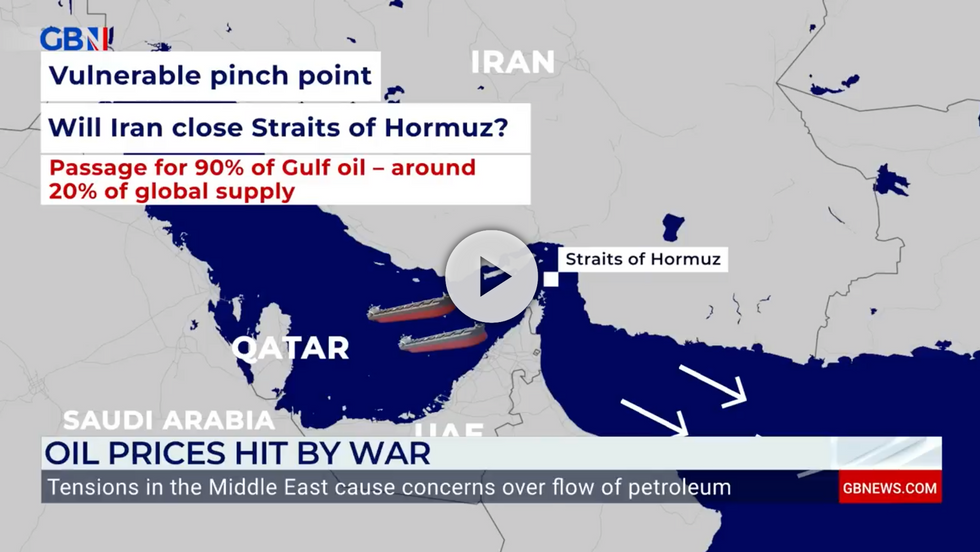
A map showing the Straits of Hormuz in the Middle East
|GB News
Please write at least 2 paragraphs
“25 per cent of the world's oil everyday is taken in tankers through those Straits of Hormuz between Iran and Oman.”
Liam rounded off by offering a warning for where the next threat could come from.
“Will Iran close the Straits of Hormuz? In fact, the Iranians are now saying that they could start a war on another front.”
“They back Hezbollah in Lebanon. They back Hamas. If they take on the US by trying to pinch global oil supplies, I'm afraid this conflict and oil prices could escalate.”


